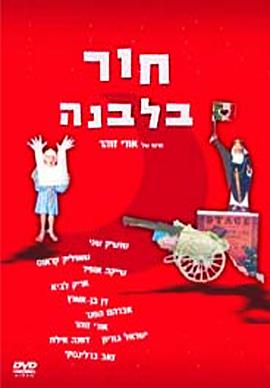视频推荐
月亮上的洞
类型:
剧情
地区:
以色列
年份:
1964
主演:
Arik,Lavie,Shaike,Ophir,Avraham,Heffner
导演:
Uri,Zohar
剧情介绍
A comic and episodic satire, the film uses improvisation to illustrate the clash between fantasy and reality in real life. Although conceived in the style of Mekas' "Hallelujah the hills" (1962), it's an authentically Israeli satire, an openly rebellious and individualistic expression that poked fun at the sacred myths of earlier zionist films. The technique of film within the film is used to portray cinema as reflection of the imagination, a miracle based on dreams and fantasies that take on concrete characteristics - parallel to the miracle of Israel, the dream that has become reality. Although not a commercial success, its importance is beyond any measure, though it remains a unique experiment, boldly uncommercial and subversive, out of any context in that patriotic, ideological epoch. A new immigrant, Tzelnik, arrives at the port of Jaffa. He goes to live in the Negev desert where he opens a kiosk in the middle of nowhere. Mizrachi comes along and opens a competing business across the way. The two make a living by selling to each other. As there is nothing there, they decide to create a world out of their imagination. They build a cardboard film set, which slowly takes on real dimensions- the buildings turn to concrete, people come to audition for parts in the "film" (cinema verité style, with Zohar mocking viciously the pretensions of the "actresses") and builders come to build appartment buildings (mocking the glorification of concrete and "heroic" settlement). In one sequence, Arab actors come and ask the filmmakers turn positive to negative, and they're given the role of pioneers who plow the land and sing zionist songs. The imagined world of the filmmakers becomes so real eventually they lose sight of the thin line between fantasy and reality. Along the way there are also many references to other films and genres: the samurai flicks of Kurosawa, westerns, the pop films by Richard lester, the meal scene from Tom Jones and many others. The film was made by a bunch of (very talented) friends Zohar gathered, and they shot it with their own funds, as a “collective flick”, another aspect of it that sets it apart from the rest of the production in the country.
热门推荐
电影窈窕绅士
猛虎还活着 电影
出轨电影推荐
韩国电影《年轻的妈妈》
电影定档是什么意思
爱情电影网网站
无人区电影高清完整版下载
双魂电影
沙堡电影在线观看
新龙门客栈电影在线观看高清免费
值得电影
韩国伦理电影在线看情事
侦察兵电影
韩国电影图解gif
水浒影视城介绍
奇米影视兔女郎
咏春电影国语版甄子丹
最最新电影
合欢影视app
穿越西伯利亚 电影
泰坦尼克号电影中文版
速度与激情7 电影下载
动作电影大全集免费观看
催泪亲情电影
尹恩惠三级电影
欧美爱情电影大全
教父电影剧情介绍
日本激情公妇厨房电影
影视app投屏
神尾舞电影
猎头电影国语
黄片电影网站
指环王 电影
月亮河电影
韩国电影爱情大片
北京高校青年电影节
月光影视免费视频大全
好看的盗墓类电影
最新战争电影下载
电影宽恕
蜂蜜与四叶草电影
日本电影万字
唐人社影视42
今日最新电影上映
我和我的家乡西瓜影视免费观看
范伟演得那个老师的电影叫啥来着
芝麻影视大全安全下载
宅男电影网在线观看影片
